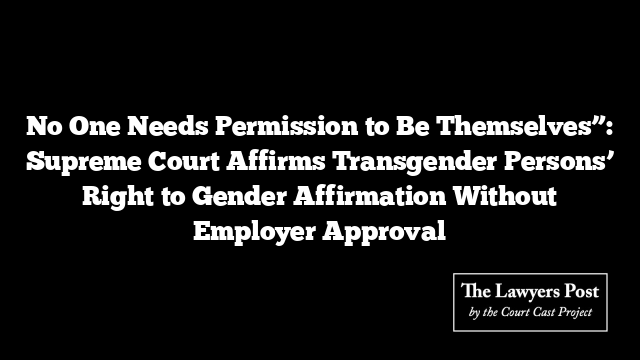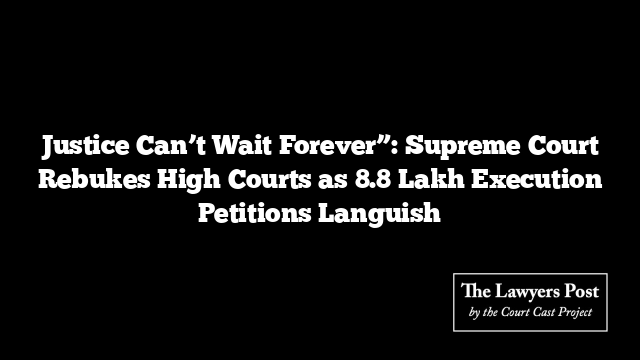in a striking affirmation of personal dignity and identity, the Supreme Court has ruled that transgender and gender-diverse individuals do not need their employer’s consent to undergo gender affirmation or surgical transition. The Court underscored that gender self-determination lies within the realm of autonomy and is not subject to workplace control — unless the nature of the job itself hinges upon gender identity.
The bench, comprising Justices JB Pardiwala and R Mahadevan, clarified that while employees may inform their employers prior to such transitions, the purpose of such notice is purely administrative — to enable necessary updates to official records and documents.
“No transgender or gender-diverse person is bound to take permission from their employer to undergo surgical intervention,” the Court said. “Employers may be given reasonable notice, but only to make necessary modifications in records.”
The judgment came in response to a plea filed by Jane Kaushik, a transgender teacher who faced repeated employment discrimination after her gender transition. Kaushik was terminated twice — first from Uma Devi Children’s Academy in Uttar Pradesh and later denied joining at JP Modi School in Gujarat — both allegedly on account of her gender identity.
Kaushik’s experience, the Court noted, highlighted systemic neglect and prejudice despite statutory protections. Under Section 9 of the Transgender Persons (Protection of Rights) Act, 2019, discrimination in recruitment or employment on the basis of gender identity is expressly prohibited — yet such safeguards remain poorly implemented.
The Court acknowledged that Uma Devi Children’s Academy had made limited accommodations, such as permitting female hostel and restroom access, but found the institution’s response to workplace harassment deeply inadequate. The bench criticized the school for lacking a proper grievance redressal system and for ignoring acts of body shaming directed at Kaushik.
However, the Court found JP Modi School’s conduct indefensible — particularly its decision to withdraw Kaushik’s offer letter immediately after she disclosed her gender transition during joining formalities. The Court held that this amounted to clear discrimination under both the Constitution and the 2019 Act.
Beyond individual accountability, the Court also held the Union and State authorities responsible for their “omissive discrimination” — a failure to ensure effective enforcement of transgender protections and monitoring mechanisms in educational institutions.
As a measure of public law compensation, the Court directed JP Modi School, the Union Government, and the concerned State authorities to each pay ₹50,000 to Kaushik.
The bench went further, calling out the broader governmental apathy that has rendered the Transgender Persons Act “a dead letter.” It directed the formation of a dedicated committee to monitor compliance and implementation of transgender rights in schools and workplaces nationwide.





